Russia vs. Ukraine: military strengths and weaknesses
Vladimir Putin has changed tactics on the battleground and could resort to more lethal weapons
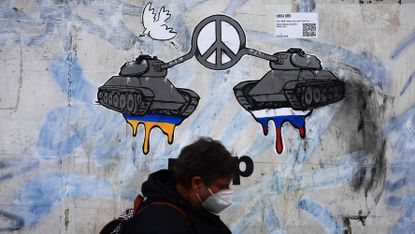
When Russian forces first invaded Ukraine on 24 February, many feared that the eastern European country’s far smaller military resources would be no match for Vladimir Putin’s armoury.
But Moscow had a “misplaced belief that it could achieve a lightning-fast victory in Ukraine”, said the Financial Times – and the invasion “has not gone to plan”.
Ukrainians, joined by small numbers of overseas volunteers, quickly took up arms, with stocks of military equipment bolstered by other nations offering support.
Subscribe to The Week
Escape your echo chamber. Get the facts behind the news, plus analysis from multiple perspectives.

Sign up for The Week's Free Newsletters
From our morning news briefing to a weekly Good News Newsletter, get the best of The Week delivered directly to your inbox.
From our morning news briefing to a weekly Good News Newsletter, get the best of The Week delivered directly to your inbox.
Military might
When the invasion began, Sky News reported that Russia’s 900,000 active military personnel far outnumbered Ukraine’s 196,000. Putin’s forces were also far better equipped for battle on land, in the air or at sea, with 74 warships and 51 submarines, compared with Ukraine’s two warships, as well as three times the amount of artillery and ten times the number of attack aircraft and helicopters.
Nevertheless, Ukraine’s defending forces “are far surpassing Western expectations”, said The Times, stalling Russia’s advance and stopping it from taking key cities. However, the Ukrainian foreign minister, Dmytro Kuleba, “told friends last week that the military had ‘two weeks’ before it ran out of anti-aircraft and anti-tank missiles”, the newspaper reported. Zelenskyy is understood to have told members of the Joint Expeditionary Force “that Ukraine is getting through a week’s worth of weapon supplies in 20 hours”.
Russia has its own logistical problems. It has made significant territorial gains, notably in the south, said the FT. But Ukraine’s armed forces military command has claimed that its opponents “have only three further days of fuel, food and ammunition left” after “a breakdown in their supply chains”, The Guardian reported. The claims “were described as ‘plausible’ by Western officials”.
Sign up for Today's Best Articles in your inbox
A free daily email with the biggest news stories of the day – and the best features from TheWeek.com
Morale
A senior US defence official told reporters yesterday that Russian troops are “struggling on many fronts”. Food and fuel shortages, “as well as frostbite due to a lack of adequate clothing”, are contributing to “continuing morale issues”, said The Guardian. The official said that Putin’s commanders were removing soldiers from the frontline as a result.
A report that indicated the true number of Russian soldiers killed in the conflict may be far higher than Moscow’s official numbers have suggested may have further harmed the troops’ readiness to fight. “Losses like this affect morale and unit cohesion, especially since these soldiers don’t understand why they’re fighting,” Pentagon official Evelyn Farkas told The New York Times. There have been reports of Russian soldiers expressing confusion as to why their country was at war with Ukraine.
Meanwhile Ukrainians have been “highly motivated” to defend their besieged nation. Thousands of citizens have reportedly volunteered to fight in the war, with small populations putting up a fierce resistance against the invading forces.
Tactics and timing
Putin’s forces have “struggled with the basics”, said the BBC’s defence correspondent, Jonathan Beale. “There is an old military saying that amateurs talk tactics while professionals study logistics. There is evidence that Russia has not given it enough consideration.”
The FT added: “Military experts say Russia’s problems stem from its own disorganisation, underperformance and overconfidence; and the Ukrainian army’s preparedness, supported by weapons and advice from members of the Nato military alliance.”
But after initial hurdles, Russian forces appear to have made a “marked change in tactics”, said Al Jazeera. Justin Bronk at the Royal United Services Institute think tank told the FT, “they seem to be falling back on the extremely brutal, but unfortunately very successful pattern in Syria and Grozny [in Chechnya] – besiege them, cut them off”.
Shelling people “until starvation and bombing just compels a surrender”, he continued. “A new and potentially more bloody chapter of the war is now under way”, said the FT.
Beyond conventional warfare
Putin may have “brought conventional, bloody warfare back to Europe”, said the FT, but the Russian leader has signalled his preparedness to resort to less conventional – but potentially much more deadly – forms of attack.
He ordered his military to put the nation’s nuclear deterrence forces on high alert a number of days into the conflict. Other world leaders have expressed increasing concern that Russia might come to rely on its nuclear arsenal as the war goes on, and the president’s chief spokesperson Dmitry Peskov “repeatedly refused to rule out” the possibility in an interview with CNN yesterday.
So far, cyberattacks launched by Russia “have been relatively minimal”, said Vox, “and far less damaging than they could have been”. And though some experts have said the country’s “cyberwarfare capabilities may have been inflated”, a “more likely reason may be” that Russia “is simply waiting for the right time”.
Meanwhile, “Russia has a long history of producing chemical and biological weapons”, said The Telegraph, and “it has shown a willingness to deploy them both on home soil and abroad with terrifying and lethal results”. President Joe Biden has taken Russia’s accusation that Ukraine has such chemical and biological weapons as a “clear sign” that Putin “is considering” using its own.
Create an account with the same email registered to your subscription to unlock access.
Julia O'Driscoll is the engagement editor. She covers UK and world news, as well as writing lifestyle and travel features. She regularly appears on “The Week Unwrapped” podcast, and hosted The Week's short-form documentary podcast, “The Overview”. Julia was previously the content and social media editor at sustainability consultancy Eco-Age, where she interviewed prominent voices in sustainable fashion and climate movements. She has a master's in liberal arts from Bristol University, and spent a year studying at Charles University in Prague.
-
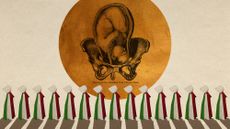 Italian senate passes law allowing anti-abortion activists into clinics
Italian senate passes law allowing anti-abortion activists into clinicsUnder The Radar Giorgia Meloni scores a political 'victory' but will it make much difference in practice?
By Chas Newkey-Burden, The Week UK Published
-
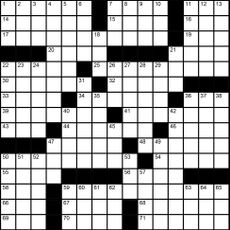 Magazine interactive crossword - May 3, 2024
Magazine interactive crossword - May 3, 2024Puzzles and Quizzes Issue - May 3, 2024
By The Week US Published
-
 Magazine solutions - May 3, 2024
Magazine solutions - May 3, 2024Puzzles and Quizzes Issue - May 3, 2024
By The Week US Published
-
 How would we know if World War Three had started?
How would we know if World War Three had started?Today's Big Question With conflicts in Ukraine, Middle East, Africa and Asia-Pacific, the 'spark' that could ignite all-out war 'already exists'
By Harriet Marsden, The Week UK Published
-
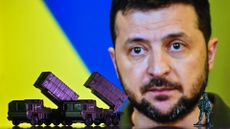 Will Iran attack hinder support for Ukraine?
Will Iran attack hinder support for Ukraine?Today's Big Question Pro-Kyiv allies cry 'hypocrisy' and 'double standards' even as the US readies new support package
By Elliott Goat, The Week UK Published
-
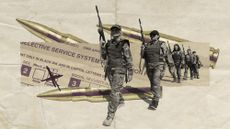 The issue of women and conscription
The issue of women and conscriptionUnder the radar Ukraine military adviser hints at widening draft to women, as other countries weigh defence options amid global insecurity
By Harriet Marsden, The Week UK Published
-
 Why is Ukraine backing far-right militias in Russia?
Why is Ukraine backing far-right militias in Russia?Today's Big Question The role of the fighters is a 'double-edged sword' for Kyiv, say commentators
By The Week UK Published
-
 Ukraine's unconventional approach to reconstruction
Ukraine's unconventional approach to reconstructionUnder the radar Digitally savvy nation uses popular app to file compensation claims, access funds and rebuild destroyed homes
By Harriet Marsden, The Week UK Published
-
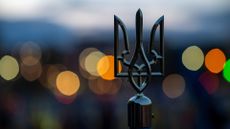 What does victory now look like for Ukraine?
What does victory now look like for Ukraine?Today's Big Question Not losing is as important as winning as the tide turns in Russia's favour again
By Elliott Goat, The Week UK Published
-
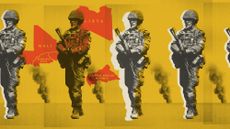 Where has the Wagner Group gone?
Where has the Wagner Group gone?Today's Big Question Kremlin takes control of Russian mercenaries after aborted mutiny and death of leadership
By Elliott Goat, The Week UK Published
-
 Will Ukraine's leadership reset work?
Will Ukraine's leadership reset work?Today's Big Question Zelenskyy hints at ousting of popular military chief, but risks backlash amid dwindling munitions, delayed funding and Russian bombardment
By Harriet Marsden, The Week UK Published